The Conundrum That Sparked a Deep Dive
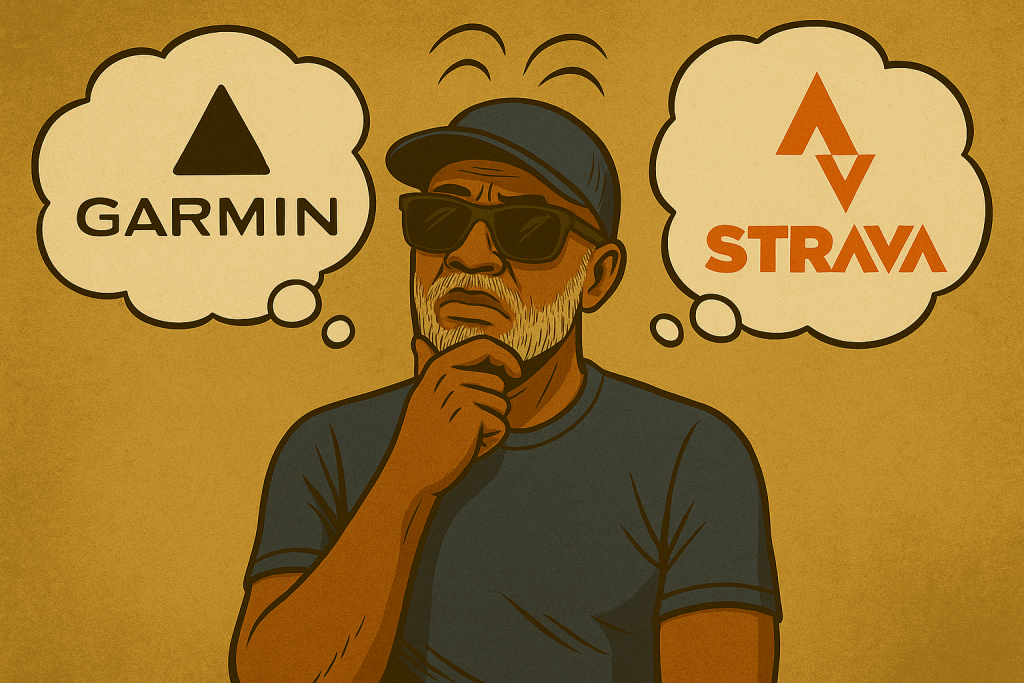
You lace up, track your training, put in the klicks or miles, and check your devices hoping for some feedback. And then you see it: your Garmin race predictor says you could run a sub-2 hour half marathon, while Strava suggests you’ll be closer to 2:20.
So who’s right? Or are they both wrong?
I asked AI for its predictions, using values collected from my Training Peaks metrics.
📊 Side-by-Side: Garmin vs Strava
Let’s look at what each platform predicted for me (July 2025):
Strava Predictions:
- 5K: 28:25 (5:41/km)
- 10K: 1:00:11 (6:01/km)
- Half: 2:20:37 (6:40/km)
- Full: 5:22:24 (7:38/km)
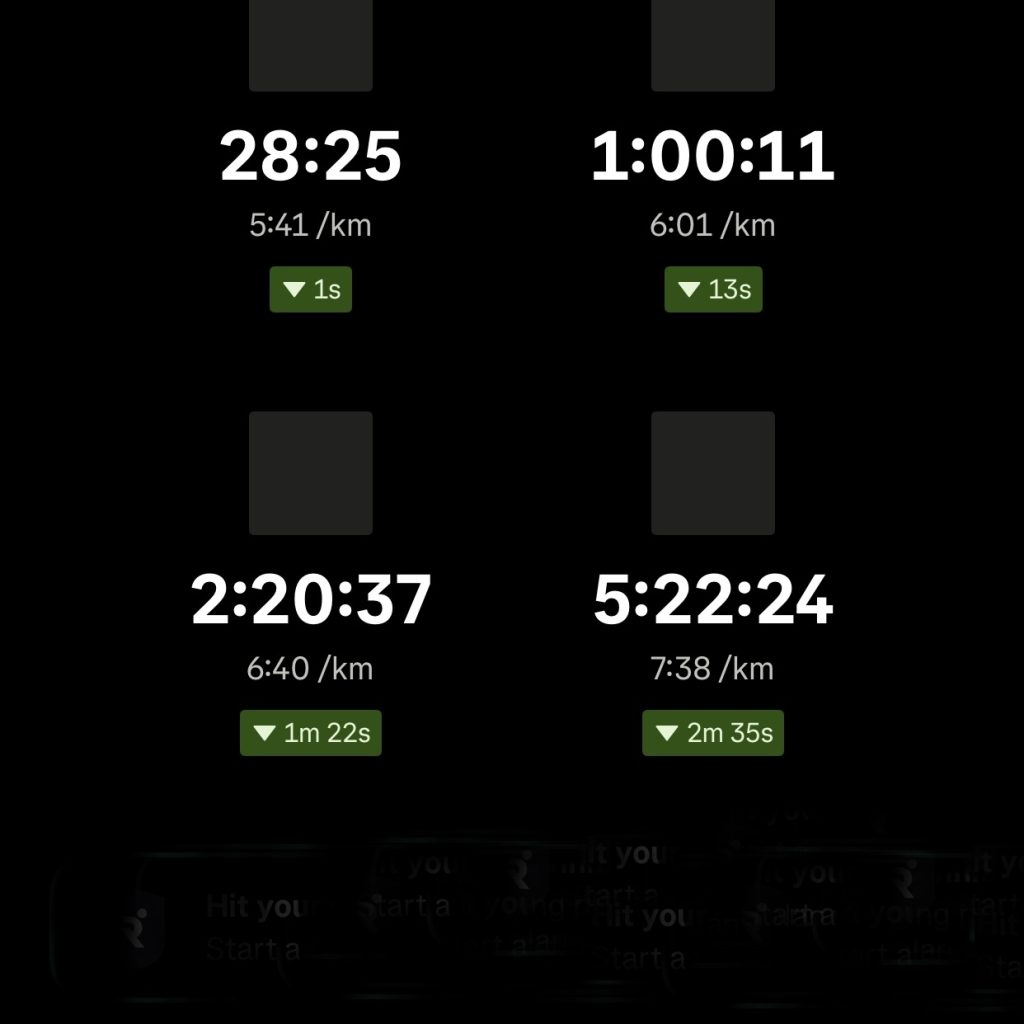
Garmin Predictions:
- 5K: 25:55 (5:11/km)
- 10K: 53:47 (5:22/km)
- Half: 1:59:15 (5:39/km)
- Full: 4:06:43 (5:51/km)
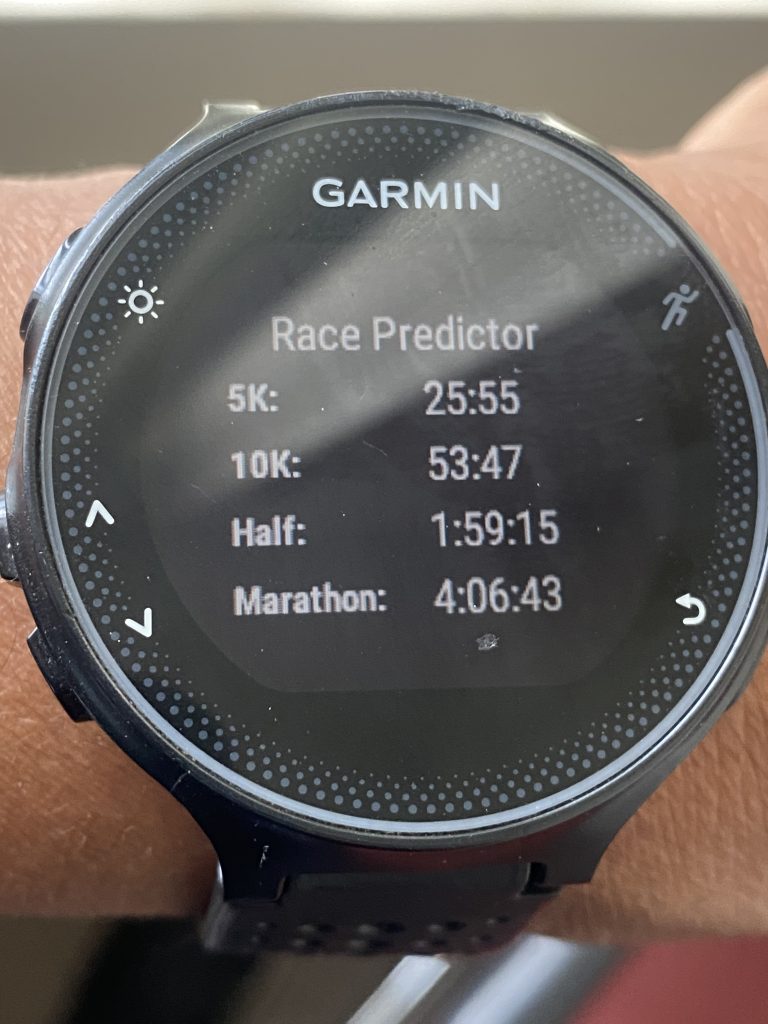
🧠 Why Are They So Different?
📊 Strava: Reality-Based, But Conservative
Strava predicts race times using your recent pace, grade-adjusted pace (GAP), and training load. It tends to underestimate performance unless you’ve logged races or hard efforts.
🧬 Garmin: Physiological Potential
Garmin’s estimates rely on VO2 max, heart rate, and training load, which means it often assumes you’ll race in ideal conditions. If you wear a chest strap regularly (I do), Garmin’s numbers get even bolder.
Summary:
- Garmin = Best-case scenario
- Strava = What your workouts suggest today
But neither gives a complete picture.
🏋️♂️ Enter: The Plus50Fit Predictor
Here is what AI prediction model using my actual TrainingPeaks metrics:
- rTSS (Run Training Stress Score)
- IF (Intensity Factor)
- Pa:HR (decoupling)
- RPE (perceived effort)
- Long-run endurance trends
Here’s what my model says as of July 3, 2025:
| Distance | Plus50Fit Predicted Time | Avg Pace |
| 5K | 27:30 | 5:30/km |
| 10K | 58:00 | 5:48/km |
| Half | 2:12:00 | 6:16/km |
| Full | 4:48:00 | 6:50/km |
These estimates reflect actual effort, aerobic durability, and training stage (currently in Base Phase 2, Week 3). They sit comfortably between the extremes of Garmin and Strava.
🔄 Visualizing the Differences
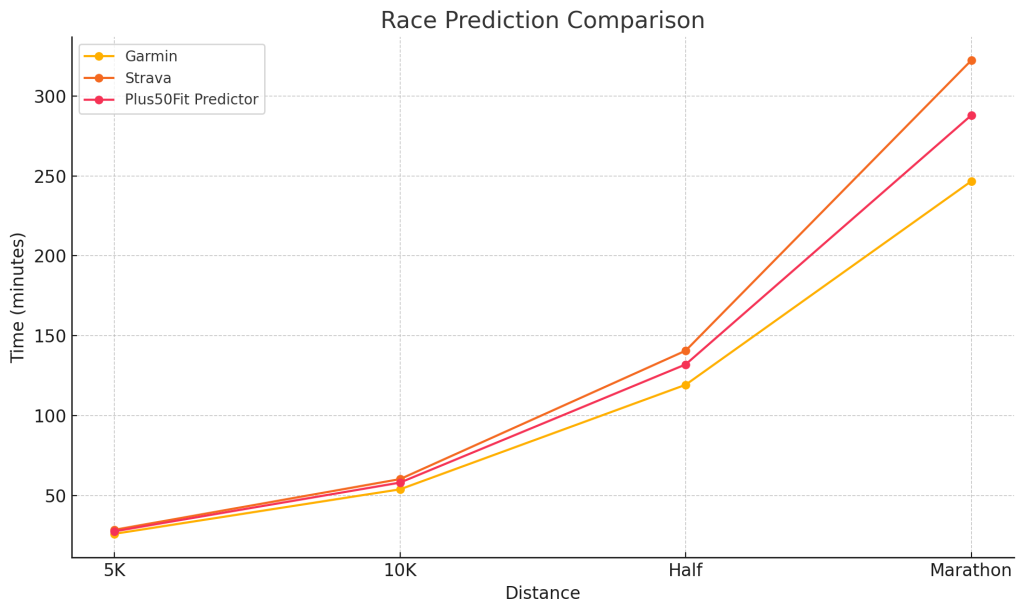
- Strava flattens expectations.
- Garmin overreaches.
- Plus50Fit meets you where your legs and lungs actually are.
📊 What My Numbers Have Saying
- Pa:HR under 5% on long runs = strong aerobic base
- IF near 0.90 on threshold work = tempo readiness
- RPE self-assessment matches metrics = high training accuracy
- Training volume rising gradually = sustainable buildup
Translation: Building smart, and the Plus50Fit numbers will sharpen monthly.
✅ So Which Prediction Should I Trust?
| Use Case | Trust This Predictor |
| Everyday training | Strava |
| VO2 trend check | Garmin |
| Race goal setting | Plus50Fit Predictor (Yup!) |
Are Strava race predictions accurate?
Strava uses Relative Effort and matched past activities to estimate race times, but it often undervalues long runs and overweights recent short efforts. Accuracy varies depending on your training style.
Why is Garmin’s predicted marathon time so unrealistic?
Garmin’s estimates are based on VO2max trends and heart rate models, which don’t always factor in terrain, fatigue, fueling, or your long-run progress. It’s a starting point – not a verdict.
Which is better: Garmin or Strava for race predictions?
Each has its strengths. Garmin relies more on physiological data and is useful when your HR data is consistent and clean; Strava reflects trends in your logged workouts. Neither is perfect. I turned to ChatGPT for help building the Plus50Fit Predictor to account for both metrics and context.
What’s a good alternative to these prediction tools?
Use a structured training plan, a recent race, or a well-executed time trial (like my recent 30-minute one) to better estimate future race times. And maybe ask for ChatGPT’s help.
🌟 Final Thoughts
Neither Garmin nor Strava is wrong – they’re just answering different questions.
- Garmin says: “Here’s what you might do at your absolute best.”
- Strava says: “Here’s what your workouts show today.”
- Plus50Fit says: “Here’s what your heart, legs, and lungs are actually capable of right now.”
Ready to find out which one wins on race day? I’ll keep updating this model as training continues.
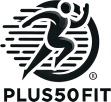
[…] 👉 Check out the full comparison here. […]
[…] numbers on your wrist might tell one story. But the miles in your legs write another.For me? I’m not chasing Garmin’s […]
[…] are fun (Garmin vs Strava’s perplexing race predictions), but the real race is won when feel meets […]